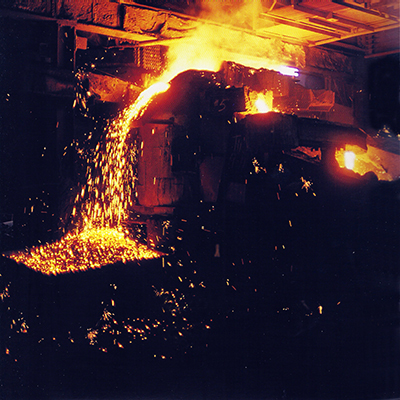
The Metal Casting Industry
Metal casting is the process of taking molten or semi-molten metal and producing a casting with a defined shape. The production of castings is a $34 billion industry in the United States that employs in excess of 250,000 employees. Despite the size of the industry, it is characterized by a number of smaller companies with 80% of the companies employing less than 100 employees. About 6% of the companies in the industry employ in excess of 250 employees.
Major metals cast include iron, aluminum, steel, brass, bronze, zinc, magnesium and lead. Major industries using castings include passenger cars, light trucks, heavy trucks, internal combustion engines, municipal applications, valves and fittings, construction equipment, mining equipment, oil field equipment, farm equipment, aerospace and railroad applications. Metal casting also includes art castings and jewelry castings.
The most common methods of casting include green sand casting, chemically bonded sand casting, die casting, permanent mold, investment casting, shell molding, vacuum molding, centrifugal casting and lost foam. Each has associated costs and benefits depending on the part’s metal, size, configuration and quantity.
There are about 1,903 owners of metal casting companies who operate about 2,100 plants throughout all the United States. The price of castings varies greatly depending on the metal and casting process. Simple iron castings may sell for as little as $.30 per pound and complex titanium investment castings may sell for over $100 per pound.
There is an increasing trend in the industry to add value to the castings through machining, painting and assembly. This is especially true for aluminum castings. The processes range from very basic to very sophisticated methods requiring precise controls. Simple casting consists of melting a metal and pouring it into a mold. Highly technical casting includes rheocasting (the injection of semi-solid metal into a mold) and directional solidification which can result in a single crystal casting used in safety related aerospace applications.
Major industry associations serving the metal casting industry in the United States include:




